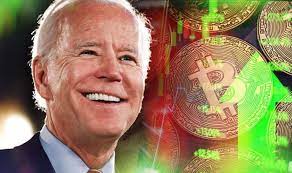In a countermove against the Biden administration's push for a "digital dollar," a coalition of five U.S. senators has jointly introduced a bill that seeks to prohibit the implementation of central bank digital currencies (CBDCs).
Led by Senator Ted Cruz, the group, which includes Senators Bill Hagerty, Rick Scott, Ted Budd, and Mike Braun, presented the CBDC Anti-Surveillance State Act on February 26, challenging the Federal Reserve's authority to establish such a system.
Unveiling the CBDC Anti-Surveillance State Act
In their February 26 filing, the senators voiced concerns over potential surveillance and privacy violations stemming from the Biden administration's proposed CBDC. Senator Hagerty emphasized the significance of safeguarding Americans' privacy, stating, "This bill blocks the issuance of a central bank digital currency, preventing CBDC from being used as a tool to surveil and violate Americans' privacy."
Senator Cruz expressed apprehensions about the Biden administration's motives, declaring, "The Biden administration eagerly anticipates encroaching on our freedom and intruding on citizens' privacy to monitor their personal spending habits. This is why Congress must clarify that the Federal Reserve lacks the authority to implement a CBDC."
Referring to CBDC as "government-controlled programmable money," Senator Cruz's announcement warned of its potential to gather intimate personal details on citizens and enable the tracking and freezing of funds.
Senator Budd underscored the potential risks of a CBDC, stating, "A CBDC would pave the way for the federal government to surveil and control the spending habits of all Americans."
Objectives of the Act
The proposed legislation directly challenges the Federal Reserve's authority, aiming to curtail its capacity to provide CBDCs to individuals and prohibit their use for monetary policy purposes.
Additionally, the bill mandates congressional authorization for any CBDC issuance, thereby diminishing the Federal Reserve's authority to introduce such a currency without explicit legislative approval.
The legislation has garnered support from influential associations, including Heritage Action for America (HAFA), the Blockchain Association, the American Bankers Association (ABA), the Independent Community Bankers Association (ICBA), and the Club for Growth (CFG).
Meanwhile, former United States President Donald Trump recently entered the CBDC debate, expressing opposition to such initiatives. Labeling CBDCs as a "threat to freedom," Trump pledged to prevent their launch if re-elected to the presidency.
 Nikolas Sargeant
Nikolas Sargeant





